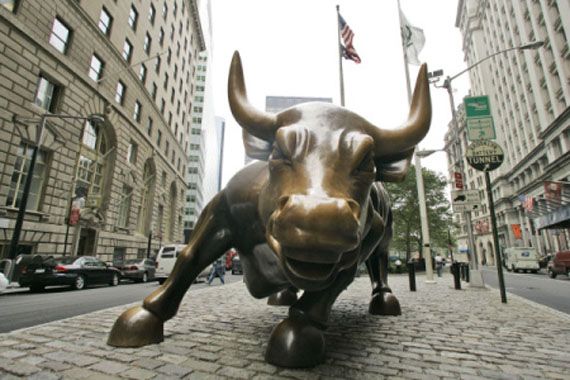
The complex issues surrounding executive remuneration and bonuses in the financial services sector have re-emerged in 2012 with aplomb. Securities firms in New York made an estimated $13.5 billion in 2011, down sharply from $27.6 billion in 2010, according to the comptroller’s estimates. It is the second consecutive year that Wall Street’s profit fell by more than half (Dealbook).
Facing such significant declines, Wall Street firms have trimmed 2011 discretionary pay. Wall Street’s cash bonus pool fell by 14 per cent last year to $19.7 billion, the lowest since 2008, according to projections by New York state Comptroller Thomas DiNapoli (Bloomberg).
Political debate in the UK, surrounding a proposed “bankers’ bonus” tax, has again catapulted the issue of executive compensation into the European spotlight. Social and political pressure has forced RBS chief Stephen Hester and Network Rail boss Sir David Higgins, to turn down bonuses that they were due to receive, despite the poor performance of their respective organisations (BBC News).
But perhaps the most provocative discussion surrounding bonuses has come at the hands of Bloomberg’s recent article Wall Street Bonus Withdrawal Means Trading Aspen for Cheap Chex, where several financial service professionals effectively complained that $350,000 per annum is not enough to live comfortably on.
Controversy aside, the feature does well to highlight the relationship between bonuses and spending on luxuries, whether it be $17,000 spent yearly on the care of two canines or $32,000 worth of tuition for a 10 year old girl. Perhaps not the fast cars or diamonds synonymous with bonus spending, but testament to just how important discretionary income is to today’s greater economy.
Prince & Associates have suggested that at the height of the boom, US bankers spent close to two thirds of their bonuses on luxury. Reuters has warned that the mere idea of Wall Street Bankers receiving lower bonuses can force them to close their wallets, in fear of subsequent unemployment. “If you are not sure whether you are going to have a job in the financial services industry shortly, you may be more conservative with your spending.”
Similarly in the UK, Ledbury Research believes that if individual bonuses drop, the luxury market needs to be prepared for a more frugal time. Their research suggests that the UK’s bonus pot has shrunk 40% from 2007 to 2010 and that a 40% shrink in discretionary income could result in an 80% decrease in luxury spending. Lower disposable income within this group could mean tougher times for luxury brands reliant on this high spending audience (Ledbury).
Interestingly enough we were having this very same conversation in April last year, when New York State Comptroller predicted that bonuses would contract down to $130,000 on average, down just 9% on 2009. The luxury industry was widely expected to take a hit, as it did in 2009, when luxury sales in the U.S. fell 9.1%. Yet 2011 was a record year for almost every sector – sales of the afore-mentioned fast cars and diamonds showed no signs of slowing down.
And in 2012 – particularly when compared to the luxury market of 2009 – there are strong emerging luxury economies in Asia, South America and the Middle East, as well as a younger generation of American affluents engaging the purchase of luxury goods. These new markets are well placed to cushion any reduction in spending that results from a reduction in bonuses.
If Bloomberg’s exposé is anything to go by, financial service professionals would rather go out spending than pull their children from expensive private schools or forgo lavish holiday homes in Connecticut. They are open to the idea of selling cars they don’t use or reducing summer holidays from four months to one, but that doesn’t necessarily imply they will all together stop spending.
Where these Wall Street bonus reductions seem to be having the most significant effect is on New York City’s local economy, which relies in part, on taxes generated by Wall Street incomes and real estate purchases by bankers and traders (TIME). Whilst those employed on Wall Street seemingly continue to spend, it is the revenues generated by those retrenched in 2009, which are missing from the city’s balance sheet.
The Comptroller’s report found that Wall Street has not come close to recouping the job losses it suffered during the financial crisis, when the industry shed 28,000 jobs. Resultantly, the study found that business and personal income tax collections from “Wall Street related activities” declined to 14% of New York State tax revenue, down from 20% prior to the financial crisis.
Perhaps tellingly, New York City retailers such as Bergdorf Goodman and Saks Fifth Avenue, have only reported growth. And both New York and London’s luxury real estate market continues to reach all new highs.









